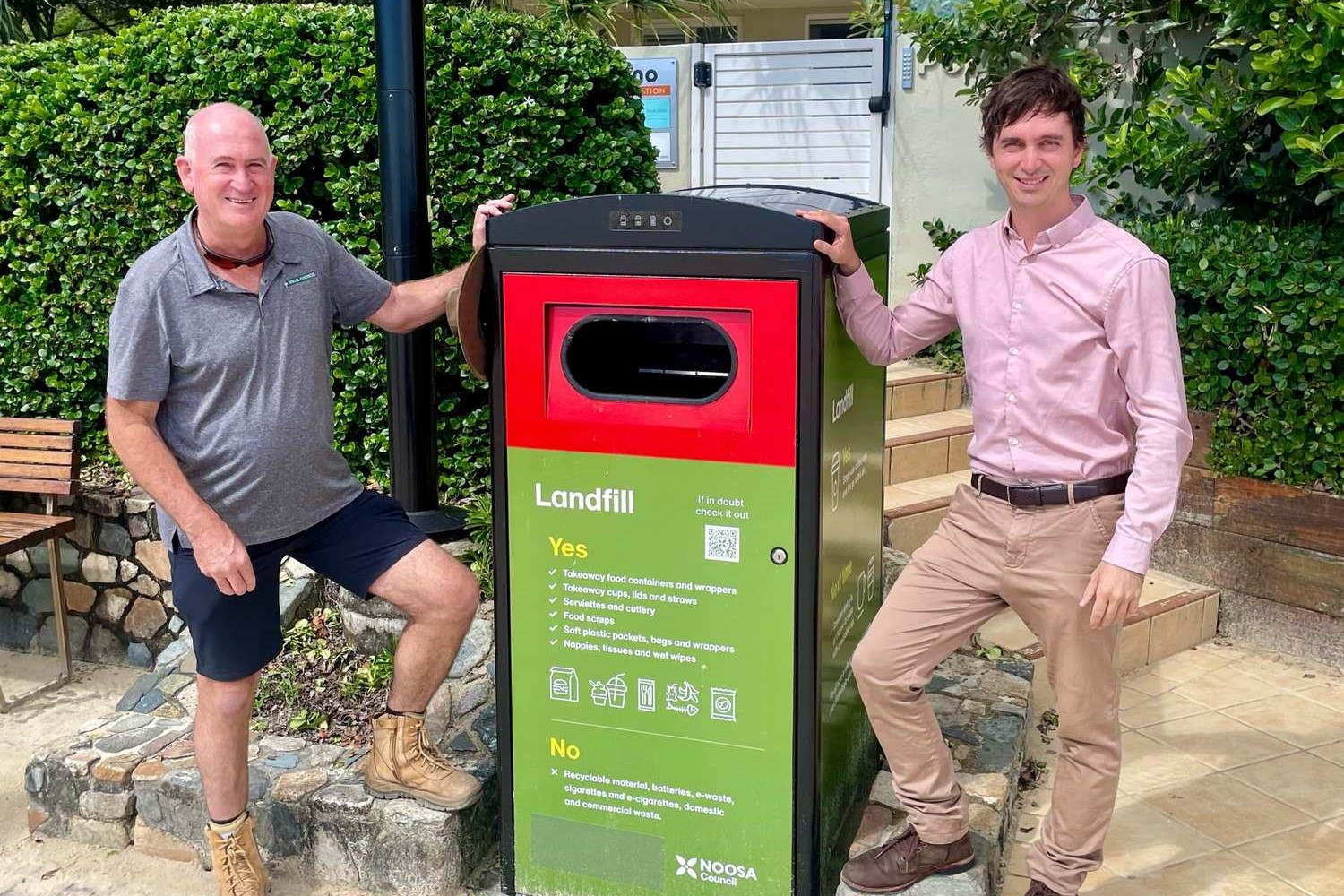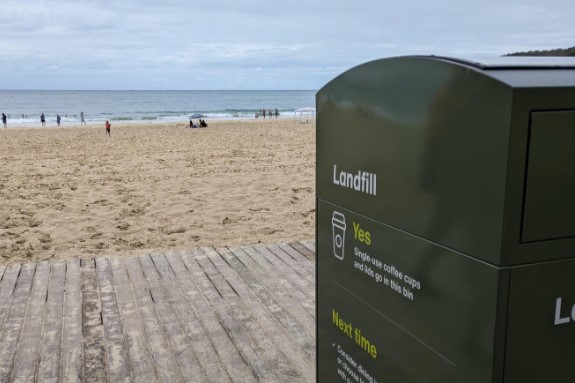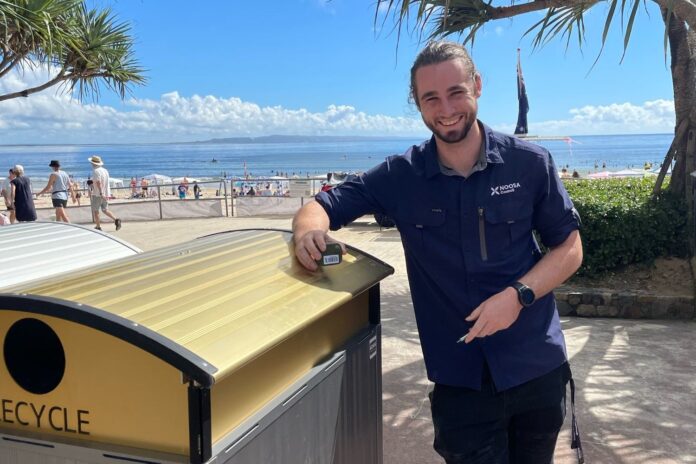Noosa Council is testing a new waste management system within crowded Hastings Street and other tourist hotspots around the region.
Waste coordinator Mark Borgert said sensors and solar-powered compaction bins are being used in busy public areas, to improve logistics and reduce the potential for bins to overflow.
“The sensors are designed to provide us with real-time data as the bin starts to fill, informing decisions as to where and when we deploy trucks, to ensure we’re not emptying some bins prematurely while others overflow,” he said via a council media release.
Council’s acting CEO Larry Sengstock said locals and visitors can also do their part.
“While technology can help, it’s up to everyone to help keep Noosa beautiful by taking personal responsibility for the rubbish they generate and how they dispose of it,” he said.
“We can’t be everywhere at all times, so we rely on locals and visitors alike to help us keep Noosa beautiful and litter free.

The Hastings Street area alone has more than 120 public waste bins.
Mr Sengstock said the community can help by not adding extra rubbish to an already full bin, if there is another emptier bin nearby.
“There’s an abundance of bins in the Hastings Street area,” he said.
“You don’t have to walk far to find one or more bins.
Do you have an opinion to share? Submit a Letter to the Editor at Sunshine Coast News via news@sunshinecoastnews.com.au. You must include your name and suburb.
“Hopefully, this Easter everyone does the right thing.”
“You can also let us know via the Snap Send Solve smartphone app if you see a bin that needs emptying.”
Mr Borgert said the trial of compaction bins, designed to extend the time before bins need emptying, would also continue beyond Easter.
“Were looking to see how each of the technologies can add value to public waste bin management,” he said.
“The Easter period is typically a busy time making it ideal for putting these new technologies to the test to see how much of a positive difference they can make to the way we manage public waste bins.”
Council’s waste plan, developed with extensive community consultation last year, called for everyone to take personal responsibility for their waste.

“That means taking your waste with you if you’re out and there is no bin nearby,” Mr Borgert said.
“Similarly, make use of recycling bins for bottles and containers rather than place them in the general rubbish bin as this prematurely fills up the waste bins and sends material that could otherwise be recycled, off to landfill.”
Like stories about Sunshine Coast people doing great things? Help us deliver more by registering for our FREE daily news feed. All it requires is your name and email at the bottom of this article.





